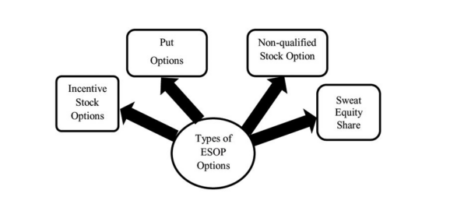Most people believe that to be an entrepreneur, one requires a professor’s intelligence, a fortune-teller’s capacity to foresee the future, a rich man’s bankroll, a salesman’s persuasiveness, a financial talent for manipulating funds, an auditor’s precision, a political leader’s power and the magnetic personality of a film star.
Since very few people possess even one or two of these qualities, no one believes he can be an entrepreneur. In fact, the only capacity essential for becoming an entrepreneur is a willingness to work hard.
An entrepreneur is a person who takes the risk of setting up his own venture for a perceived reward. He is a person who initiates the idea, formulates a plan, organizes resources, and puts the plan into action to achieve his goals.
Table of Contents
-
1 Questions To Ask an Entrepreneur
- 1.1 Do you have a strong desire to be a winner?
- 1.2 Do you have a quality of stick-to-it?
- 1.3 Do you prefer a middle way of the strategy when you have analysed a risky problem objectively and think you can solve it?
- 1.4 Are you alert to opportunities? Do you seize and convert them to your advantage?
- 1.5 Are you unaffected by personal likes and dislikes while approaching problems?
- 1.6 Do you find it important to know how you are doing, when you are working on a goal or a task?
- 1.7 Do you welcome dealing with an unfamiliar but interesting situation?
- 1.8 Do you have a dislike for working for others?
- 1.9 Are you flexible in your decisions?
- 1.10 Do you think ahead, plan your future and then work to make it come true?
- 1.11 Are you comfortable dealing with people at all levels?
- 1.12 Can you influence others?
- 1.13 Are you capable of working long hours and tackling different problems at the same time?
- 1.14 Are you aware of yourself?
- 1.15 Do you tend to think ahead?
Questions To Ask an Entrepreneur
Entrepreneurs have specific qualities; they have special strengths that they draw upon for their adventure into business. If you want to start and succeed in your enterprise, you are required to play different roles at different stages of your enterprise.
Some of the following questions will determine how far a person can become an effective entrepreneur:
- Do you have a strong desire to be a winner?
- Do you have a quality of stick-to-it?
- Do you prefer a middle way of the strategy when you have analysed a risky problem objectively and think you can solve it?
- Are you alert to opportunities? Do you seize and convert them to your advantage?
- Are you unaffected by personal likes and dislikes while approaching problems?
- Do you find it important to know how you are doing, when you are working on a goal or a task?
- Do you welcome dealing with an unfamiliar but interesting situation?
- Do you have a dislike for working for others?
- Are you flexible in your decisions?
- Do you think ahead, plan your future and then work to make it come true?
- Are you comfortable dealing with people at all levels?
- Can you influence others?
- Are you capable of working long hours and tackling different problems at the same time?
- Are you aware of yourself?
- Do you tend to think ahead?
Do you have a strong desire to be a winner?
Need to Achieve: Most people dream of success and achievement but do not take any actions towards achieving these dreams. Entrepreneurs, on the other hand, have a strong desire to achieve a higher goal and make their dreams come true. For them winning is achievement.
Do you have a quality of stick-to-it?
Perseverance: Once committed to a goal and a course of action, entrepreneurs become absorbed in it. They are not deterred by difficulties and problems that beset any project; they work hard until the whole project is successfully accomplished. They do not give up easily.
Do you prefer a middle way of the strategy when you have analysed a risky problem objectively and think you can solve it?
Moderate Risk Taker: Entrepreneurs are not high risk-takers; they are not gamblers. They choose a moderate risk rather than play wild speculative gamble. They love a moderate-risk situation, high enough to be exciting, but with a fairly reasonable chance to win.
Are you alert to opportunities? Do you seize and convert them to your advantage?
Ability to Find and Explore Opportunity: Entrepreneurial persons are quick to see and seize opportunities. They show an innovative turn of mind and convert difficulties into opportunities. But they are realistic too. They plan and anticipate carefully themselves to achieve their goals in realizing an opportunity.
Are you unaffected by personal likes and dislikes while approaching problems?
Analytical Ability: Entrepreneurs are realistic. They have a matter-of-fact approach to business undertakings. They are not likely to let personal likes and dislikes stand in their way. When they require assistance, they select experts rather than friends and relatives to help them. They generally do not take an emotional attitude towards their business or a problem.
Do you find it important to know how you are doing, when you are working on a goal or a task?
Using Feedback: Entrepreneurs like to have immediate feedback on their performance. They like prompt and accurate data and it does not make any difference whether the information they get is favourable or unfavourable. In fact, they are stimulated by unfavourable news to pour more energy into attaining their objective.
Do you welcome dealing with an unfamiliar but interesting situation?
Facing Uncertainty: Achievement-oriented people tend to be optimistic even in unfamiliar situations. The odds may not be clear but the circumstances may be appealing. Entrepreneurial persons in such situations see no reason why they cannot win through their abilities.
They go ahead undeterred, sometimes even without guidelines and frequently make the best of whatever opportunities there are. As they begin to understand their environment they begin to calculate their chances very closely. Thus, paradoxically they present a picture of boldness in the face of the unknown and prudence in the face of the familiar. They usually win by applying their special insight and skill.
Do you have a dislike for working for others?
Independence: It is found that most entrepreneurs start off on their own because they do not like to work for other people. They like to be their own masters and want to be responsible for their own decisions.
Are you flexible in your decisions?
Flexibility: Most successful people after weighing the pros and cons of a decision, tend to change if the situation so demands. They do not hesitate to revise their decisions. successful entrepreneurs are persons with open minds, not rigid ones.
Do you think ahead, plan your future and then work to make it come true?
Planner: Most successful people tend to set a goal for themselves and plan to achieve that goal within a certain time limit.
Are you comfortable dealing with people at all levels?
Interpersonal Skills: An entrepreneur is a person who, during the course of his activities, comes across many types of persons with whom he has to deal. He has to make them work for him, with him and help him to attain his objectives. Hence, he should be a person who likes working with people and who has skills in dealing with people.
Can you influence others?
Motivator: In the course of his career, an entrepreneur will be required in many situations to influence people and make them think in his way and act accordingly. He motivates people to act.
Are you capable of working long hours and tackling different problems at the same time?
Stress Taker: As a central figure in your enterprise, you will have to cope with many situations at the same time and make the right decisions which may involve a lot of physical and emotional stress. All this can be done if you have the capacity to work long hours and keep cool under a lot of tension.
Are you aware of yourself?
Positive Self Concept: An achiever directs his fantasies towards the accomplishment of worthwhile goals and sets standards of excellence in what he is doing. This is based upon the awareness of his strengths and weaknesses. He uses positive knowledge to support his thinking. He is rarely negative. If he has positive self-esteem, he will be more successful.
Do you tend to think ahead?
Orientation to Future: Entrepreneurs show a high level of future orientation. They do not allow the past to obsess them. They are oriented towards the present and future. “So it was, but now what to do”., this is their usual response.
No entrepreneur has all these qualities but most of them will have many. So the first step for a person aspiring for entrepreneurship is making an inventory of the traits he possesses. This self-awareness and analysis will help define his strengths and help overcome his weaknesses.




